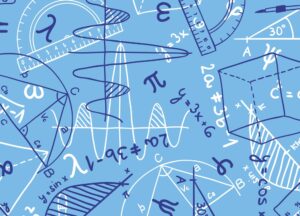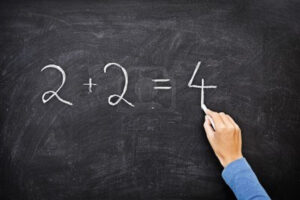David Hilbert: how did the great mathematician fail in his dream?
David Hilbert undoubtedly laid the foundations of modern mathematics including https://argoprep.com/blog/k8/go-math-grade-1-vs-argoprep/. He formulated 23 problems, some of which are still unsolved today. But let us not get ahead of ourselves, but first things first.
David Hilbert entered mathematics as the author of the solution to the so-called Gordon problem (which represented long and complicated calculations) and as the author of the axiomatic method. To formulate this method, Hilbert set aside algebra and number theory in order to fully immerse himself in the study of the fundamentals of geometry.
David emphasized that there is no single just geometry and that there are many of them. And each has a different set of axioms. The scientist declared that any mathematical problem is solvable. That you can get a proof of any theorem, or find a positive or negative answer to a mathematical problem.
Today, however, we know that this is far from true. As previously written, the mathematical scientist has contributed enormously to the formulation of mathematical problems of our time. Due to the brevity of the article, it is not possible to give a complete list, but it is worth noting here that in 2000 Fields Prize laureate Stephen Smale compiled a list of 18 problems of mathematics relevant in the XXI century on the basis of Hilbert’s problems including https://argoprep.com/blog/k8/go-math-grade-2-vs-argoprep/.
His academic career has been more than successful!
In 1888 David Hilbert became a professor at the University of Königsberg. In 1892 he was already a professor at the University of Göttingen. In 1915, the mathematician of all times and nations competed with Albert Einstein in deriving the field equations of relativity theory. In 1928, he published Fundamentals of Theoretical Logic. It was the first textbook on mathematical logic in its modern sense.
It seemed that Hilbert was able to realize his dream, and he was almost at the goal, but thundered 1930 … The mathematician retired and almost simultaneously on the scientific scene of history comes young Kurt Gödel, who imposes restrictions on Hilbert formalism.
scene of history comes young Kurt Gödel, who imposes restrictions on Hilbert formalism.
The young and shy young man’s speech disproved the entire inconsistency of Hilbert’s mathematics. Mathematics was again essentially unreliable! John von Neumann, the founder of the principles of modern computers, called Gödel the greatest logician since Aristotle.
On top of the collapse of his dream, Hilbert faced an even deeper disappointment. In 1933, A. Hitler came to power in Germany and Ludwig Biberbach became head of German science, promoting “Aryan, or German,” mathematics. The University of Göttingen quickly gave up its international position. Many scientists, including Hermann Weil (Hilbert’s favorite student), were forced to emigrate.
It was interesting that when Hilbert was seated next to the new Minister of Education at a banquet and the latter asked:
How is mathematics in Göttingen now that it has been purged of Jewish influence? – Hilbert answered: Mathematics in Göttingen? But it doesn’t exist anymore.
The great scientist died in Göttingen to the cannonade of guns on February 14, 1943. Less than a dozen people attended his funeral. But even today his words, which became an epitaph, are still alive: “We must know. We will know.

Recent Comments